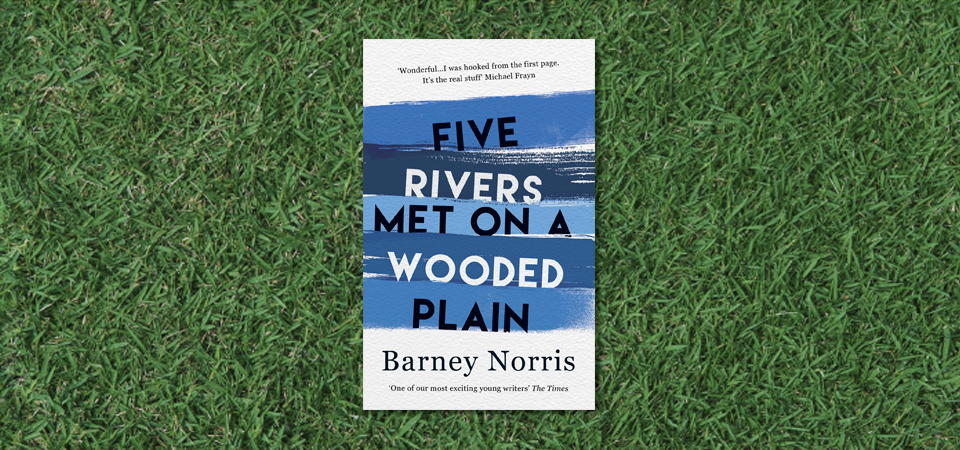Barney Norris on writing both plays and novels

The author of Five Rivers Met On A Wooden Plain reflects on the differences between writing plays and novels, and muses on why this is an important question
People have started asking me what the difference is between writing plays and writing novels. I find the question completely paralysing, and recently I’ve felt quite unhealthily preoccupied by it, because, to my surprise, I don’t know the answer.
I can offer possible differences between a play and a novel. The principle difference, to my mind, is time. Plays are experienced at a tempo the audience doesn’t select; a novel is read at the pace of the reader. That’s a totally different relationship between the material and its recipient, and opens up myriad potentialities which both forms feed on, creating infinite potential points of divergence between the two worlds. Additionally to this, as a general rule, a novel lasts many more hours than a play – not only because most plays are done in an evening, but also because most readers will exercise their right to choose the pace of their experience and read a book over several sittings, fitting in their lives around the reading, leaving the story aside and then coming back to it. This makes different subjects, and different approaches to narrative, appropriate (and inappropriate) for the different media. There are metaphoric structures which blow your mind in the theatre and could never sustain across the whole of a novel, the whole of a busy week where a reader only snatches a few pages before bed and can’t quite remember a character’s name. And there are architectural feats that make novels look extraordinary, and make plays look self-involved.
Where the theatregoer watches scenes play out, the reader imagines them into being.
I also think there’s a profound difference in the social action of each form. Theatre is about the sublimation of the self into a collective, shared experience. It’s a hive art. The novel individualises, isolating the reader from their environment in an attitude, at a physiological level, of prayer (theatregoers look out, readers look down, this is the primary difference), and gives that reader extraordinary control in return for their isolation. Where the theatregoer watches scenes play out, the reader imagines them into being. They shape the world they visit, but they live there alone.
Which may or may not all be interesting, but doesn’t offer any meaningful difference between the act of writing the two forms, apart from gesturing at various technical considerations one has to bear in mind in order to get anywhere. I’ve thought long and hard, and I really don’t think it feels very different at all to plan a play or plan a novel. The same Tetris-feeling of narrative coming together spices your brain, removing you ever so slightly from the room you’re in, drowning you in daydream; the same writer’s block makes everything you do seem hopeless. The same long walks come in handy.
The real difference, in terms of my own experience, is in the collaborators it means I work with. When I write plays, I seek in the first place to write them for my company Up In Arms, a family of collaborators I’ve built over fifteen years, with whom I share a frame of reference and a hinterland of experience that comes into play in the making of our stories.
When I write books, I work with a new family, my friends at Peters, Fraser and Dunlop and at Transworld. That work is slightly more solitary, but it shares an essential, central function with my work in the theatre. Conversation is at the heart of both processes. The tennis of drafting and redrafting possible formulations of a story, an idea, that takes slow shape in sharing it with other people, taking it away and remaking it and sharing it again, for months and months before you get anything decent down on paper is the heart of growing something new, I think. Both processes are also characterised by the same research method which is the basic fabric of all my writing - ambling through the physical world I know as a way of ambling through memory, talking to people and waiting to be surprised into thinking something new.
What really interests me about this question, the difference between writing a play and writing a novel, is the fact that people ask it. I find the question delightful for what it shows about the way we engage with artistic products. In my role as Artistic Associate at Oxford Playhouse, I run a programme of post-show discussions, and am always struck by how many audience questions tend to have a technical, almost mechanical focus. How were the lines learned? How do you get to sleep afterwards? What were rehearsals like? What’s it like touring the show?
Public interest in artistic products is significantly preoccupied by its construction, not what it expresses. Sometimes I find that a bit depressing. I wish people would look harder at the subjects of work, as well as the way those subjects are treated. But I also find it wonderful. It’s wonderful to remember how magical a story, and an act of storytelling, can be. How exciting it is to see the way that people spin a yarn. It’s wonderful to know that gives pleasure to people, as you labour away at it, not really noticing the technical stuff, trying to aim all the time at the further-off horizon of the story and the reasons you want to tell it.